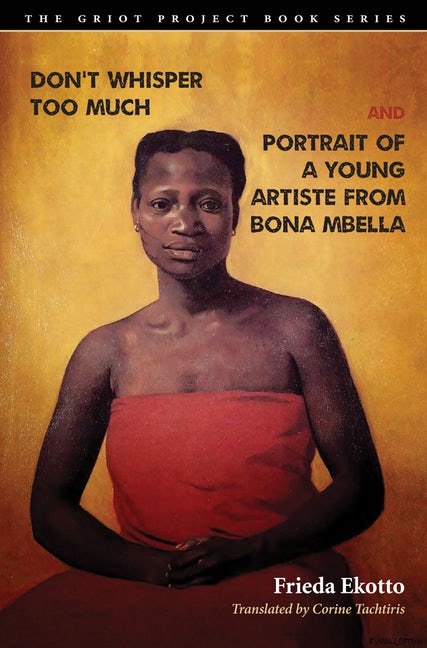In celebration of ALTA43, Bucknell University Press has assembled a list of books that may be of interest to attendees. Bucknell is a leading publisher in the humanities with a focus on literary studies, and maintains a broad interest in translation and translated works—particularly in Spanish and francophone studies. Over the years, we have published new translations of canonical texts, first translations of groundbreaking works, and important books about the practice of translation itself. During this time of physical separation and virtual togetherness, publishing work that transcends the boundaries of language and nation is more important than ever: we’re therefore excited to share the following books with you.
If you would like to discuss whether your work-in-progress might be right for Bucknell University Press, contact seg016@bucknell.edu or see our submission guidelines for more information.
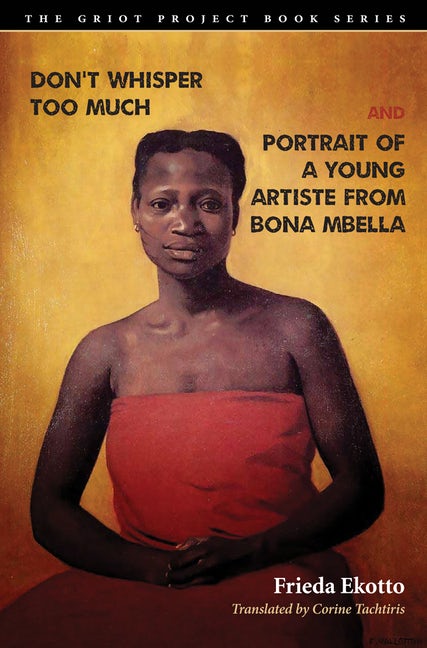
Don’t Whisper Too Much and Portrait of a Young Artiste from Bona Mbella
by Frieda Ekotto
Introduction by Lindsey Green-Simms
Translated by Corine Tachtiris
Don’t Whisper Too Much was the first work of fiction by an African writer to present love stories between African women in a positive light. Bona Mbella is the second. In presenting the emotional and romantic lives of gay, African women, Ekotto comments upon larger issues that affect these women, including Africa as a post-colonial space, the circulation of knowledge, and the question of who writes history. In recounting the beauty and complexity of relationships between women who love women, Ekotto inscribes these stories within African history, both past and present.
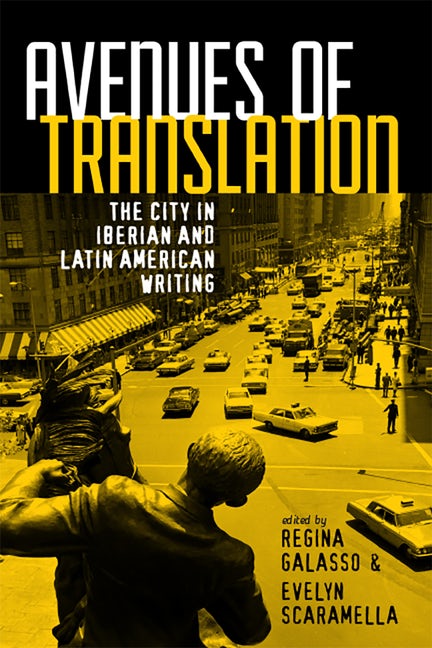
Avenues of Translation: The City in Iberian and Latin American Writing
Edited by Regina Galasso and Evelyn Scaramella
Winner of the 2020 SAMLA Studies Book Award — Edited Collection
Cities both near and far communicate in a variety of ways. Travel between, through, and among urban centers initiates contact, and cities themselves are sites of ever-changing cultural and historical encounters. Predictable and surprising challenges and opportunities arise when city borders are crossed, voices meet, and artistic traditions find their counterparts. Using the Latin word for “translation,” translatio, or “to carry across,” as a point of departure, Avenues of Translation explores how translation perpetuates, diversifies, deepens, and expands the literary production of cities in their greater cultural context, and how translation shapes an understanding of and access to a city’s past and present literary and cultural practices. Thinking about translation and the city is a way to tell the backstories of the cities, texts, and authors that are united by acts of translation.
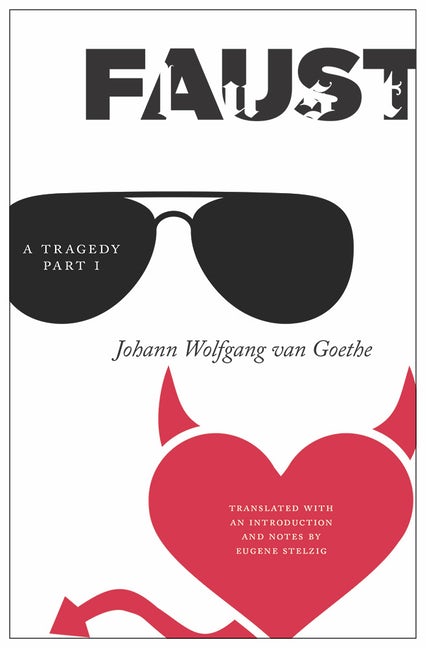
Faust: A Tragedy, Part I
by Johann Wolfgang von Goethe
Edited and Translated by Eugene Stelzig
Goethe is the most famous German author, and the poetic drama Faust, Part I (1808) is his best-known work, one that stands in the company of other leading canonical works of European literature such as Dante’s Inferno and Shakespeare’s Hamlet. This is the first new translation into English since David Constantine’s 2005 version. Why another translation when there are several currently in print? Eugene Stelzig’s new translation renders the text of the play in clear and crisp English for a contemporary undergraduate audience while at the same time maintaining its leading poetic features, including the use of rhyme.
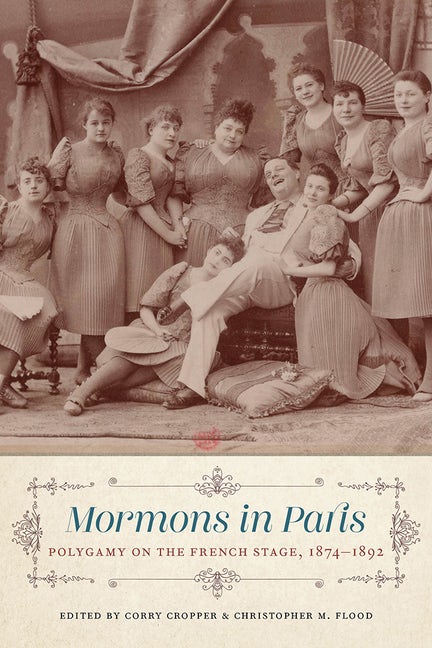
Mormons in Paris: Polygamy on the French Stage, 1874-1892
Edited and Translated by Corry Cropper and Christopher M. Flood
This new critical edition presents translations of four musical comedies staged or published in France in the late 1800s: Mormons in Paris (1874), Berthelier Meets the Mormons (1875), Japheth’s Twelve Wives (1890), and Stephana’s Jewel (1892). Each is accompanied by a short contextualizing introduction with details about the music, playwrights, and staging. Humorous and largely unknown, these plays use Mormonism to explore and mock changing French mentalities during the Third Republic, lampooning shifting attitudes and evolving laws about marriage, divorce, and gender roles.
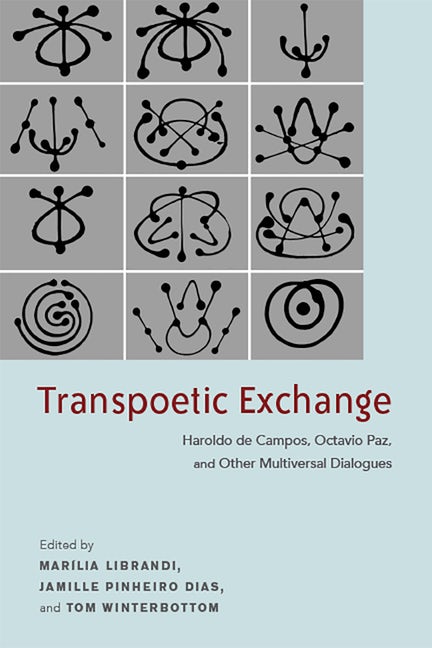
Transpoetic Exchange: Haroldo de Campos, Octavio Paz, and Other Multiversal Dialogues
Edited by Marília Librandi, Jamille Pinheiro Dias, Tom Winterbottom
Transpoetic Exchange illuminates the poetic interactions between Octavio Paz (1914-1998) and Haroldo de Campos (1929-2003) from three perspectives–comparative, theoretical, and performative. The poem Blanco by Octavio Paz, written when he was ambassador to India in 1966, and Haroldo de Campos’ translation (or what he calls a “transcreation”) of that poem, published as Transblanco in 1986, as well as Campos’ Galáxias, written from 1963 to 1976, are the main axes around which the book is organized. The collection holds great value for those interested in all aspects of literary translation and it enriches the ongoing debates on language, modernity, translation and the nature of the poetic object.
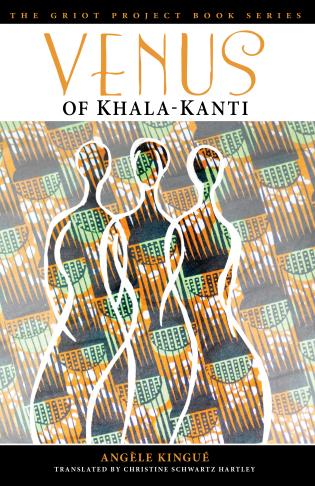
Venus of Khala-Kanti
by Angèle Kingué, translated by Christine Schwartz Hartley
Venus of Khala-Kanti is a tale of life-altering loss and mystical recovery. Set in an imaginary West African village that becomes a charming cul-de-sac, the unintended consequence of a national roadwork project gone awry, the story follows characters drawn with humor, irony, and empathy. The heart of the story beats with the laughter and tears of three women. Having faced incredible hardship, they come together to build their lives anew, armed with the age-old spirit of human resilience, understanding, and tenderness. Tapping into the very soil of Khala-Kanti, Bella, Assumta, and Clarisse construct spaces, both internal and external, where they and others can rejuvenate their bodies, minds, and spirits. They build the Good Hope Center, which embraces both the physical and the mystical landscape of the story. The Center fuels the restoration and growth of the village’s inhabitants, and offers sanctuary for those who visit and those who stay.
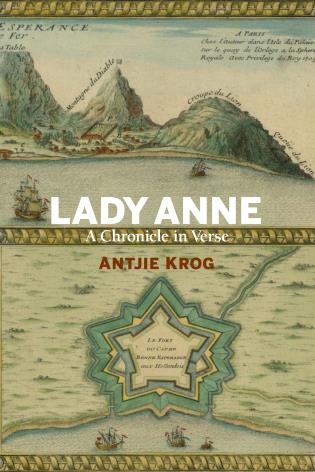
Lady Anne: A Chronicle in Verse
by Antjie Krog
Lady Anne: A Chronicle in Verse by Antjie Krog is the first English translation of an award winning book published in Afrikaans in 1989. It engages critically and creatively with a key moment of colonial history—the time Lady Anne Barnard spent at the Cape of Good Hope, from 1797 to 1802. Usually mentioned merely as a witty hostess of fabulous parties, Anne Lindsay Barnard, the daughter of a Scottish Earl and the wife of a colonial administrator, was an independent thinker and a painter and writer of genius. She left diaries, correspondence and watercolors documenting her experiences in this exotic land, the contact zone of colonizers and indigenous peoples. Antjie Krog acts as bard and chronicles an epic about this remarkable heroine’s life in South Africa, and intertwines it with life two hundred years later in the same country but now in the throes of anti-apartheid anger and vicious states of emergency.
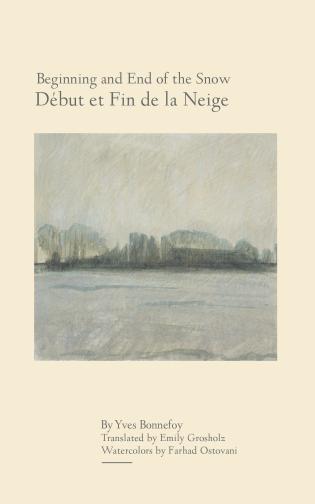
Beginning and End of Snow
By Yves Bonnefoy, translated by Emily Grosholz
Yves Bonnefoy’s book of poems, Beginning and End of the Snow followed by Where the Arrow Falls, combines two meditations in which the poet’s thoughts and a landscape reflect each other. In the first, the wintry New England landscape he encountered while teaching at Williams College evokes the dance of atoms in the philosophical poem of Lucretius as well as the Christian doctrine of death and resurrection. In the second, Bonnefoy uses the luminous woods of Haute Provence as the setting for a parable of losing one’s way.
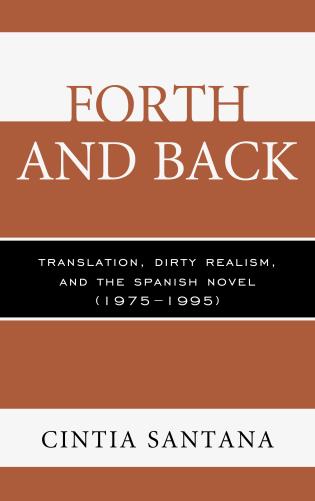
Forth and Back: Translation, Dirty Realism, and the Spanish Novel (1975-1995)
By Cintia Santana
Forth and Back broadens the scope of Hispanic trans-Atlantic studies by shifting its focus to Spain’s trans-literary exchange with the United States at the end of the twentieth century. Santana analyzes the translation “boom” of U.S. literature that marked literary production in Spain after Franco’s death, and the central position that U.S. writing came to occupy within the Spanish literary system. Santana examines the economic and literary motives that underlay the phenomenon, as well as the particular socio-cultural appeal that U.S. “dirty realist” writers—which in Spain included authors as diverse as Charles Bukowski, Raymond Carver, and Bret Easton Ellis—held for Spaniards in the 1980s. Santana also studies the subsequent appropriation of this writing by a polemic group of young Spanish writers in the 1990s whoself-consciously and insistently associated themselves with the U.S..
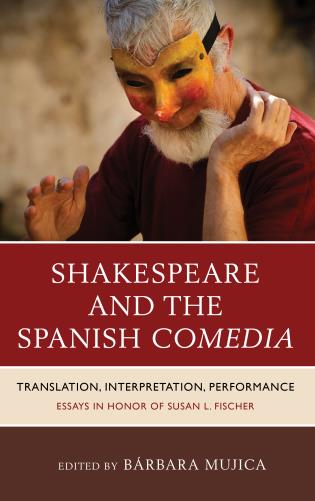
Shakespeare and the Spanish Comedia
Translation, Interpretation, Performance: Essays in Honor of Susan L. Fischer
Edited by Bárbara Mujica
Shakespeare and the Spanish Comedia is a nearly unique transnational study of the theater / performance traditions of early modern Spain and England. Divided into three parts, the book focuses first on translating for the stage, examining diverse approaches to the topic. It asks, for example, whether plays should be translated to sound as if they were originally written in the target language or if their “foreignness” should be maintained and even highlighted. Written by a highly respected group of British and American scholars and theater practitioners, this book challenges the traditional divide between the academy and stage practitioners and between one theatrical culture and another.
